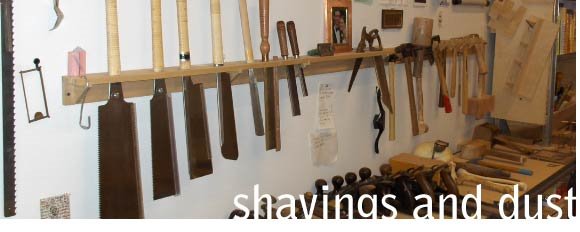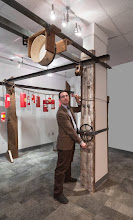One annual ritual that I will perform today is brushing out and putting away my fur felt hats and wool caps and taking out my straw hats and linen and cotton caps. This is always a ritual of relief, for me, acknowledging that yes, spring is FINALLY here, that days are warm and long, and that the snow is behind us for a few months. I follow the rule set out by Truman, who though not a particularly good person to emulate in general had a pretty good idea about hats: Fur felt Labor Day to Memorial Day, straw or linen from Memorial Day to Labor Day. This annual changing of the sartorial guard makes me indulge in my other ritual.
Another ritual that I will observe is to acknowledge all of those Americans who have served or are serving in the military. Memorial Day, as you probably know, was created initially to honor Civil War vets, and has since been expanded to include all American vets and soldiers. Pretty good idea.
The high school that I went to was not a wealthy one, and there were many of my classmates who joined up right out of school because they could not afford college or had no expectation that they would ever go to college. This was during the first Gulf War, and many of them went over there to wander around in the desert and carry a rifle. A lot of the people getting killed right now in the Middle East are about the age that those kids were then: 18, 19, 20. Chilling to think about. Makes me realise how lucky I am and have been. There is that Vietnam-era song lyric "It's always the old who lead us off to war/It's always the young who die."
Which also makes me think about another kid, who joined up and went off to war. Found himself landing on a formerly insignificant beach in France that was literally strewn with the bodies of dead kids that were about his age. He drove his half-track from that beach in Normandy across Europe with the 796th Anti Aircraft Battalion and came home alive, luckily, or else he and his new wife would never have had Janet, who never would have given birth to my long-suffering wife. Which would mean no Thomas, of course. These accidents of history seem so inevitable from the remove of many decades, but really one stray bullet would have had me married to someone else, with a different child and a (probably) different life. Tech Sgt Charles G Simonson was more fortunate than many of his peers, he lived to a good old age, though he died before Karen and I met, and took care of his family well. We are extremely thankful that his wife is still alive and has had a chance to hold her great grandson, and will again in just a couple of weeks.
Now, I'm a pacifist. I think war is a stupid stupid stupid way to resolve conflict. I truly believe what Machiavelli wrote in The Prince about the effectiveness of brute force and violence, and I further believe that violence only ever begets violence. But regardless of politics, regardless of what you personally may think about the many conflicts in which we are engaged, think today about the actual soldiers with their boots on the ground wherever they are. They’re the ones who really make the history. Not the fat old white dudes that sit safely a thousand miles away, signing the orders to send American kids off to die with one hand while accepting corporate bribes with the other, but the kids like the kids from my high school, that are freezing, or sweating bullets, that are hunkered down getting shot at, that are wondering if that car coming this way is loaded with explosives. The history we get in school is the history of the rich and powerful, we so seldom hear the voice of the poor and disenfranchised. We seldom are taught in school about the terror, the misery, the true bravery, the real but small triumphs that make up life in a battle field for a Private First Class, nineteen years old and away from home for the first time in his or her short life, clutching a rifle and trying to believe the reasons their C.O. told them they were where they are. Remember those folks today.
This has gotten much longer than I meant for it to, all of this stuff gets me real pensive. All I really wanted to do was to share the poem below, one of my favorites. It is by Wilfred Owen, who himself was killed in the trenches in World War I very soon after he wrote the poem. This is one of those that has stuck with me ever since I first read it in 10th grade, and which still makes me cry when I read it. Seems appropriate for today.
DULCE ET DECORUM EST
Wilfred Owen
Bent double, like old beggars under sacks,
Knock-kneed, coughing like hags, we cursed through sludge,
Till on the haunting flares we turned our backs
And towards our distant rest began to trudge.
Men marched asleep. Many had lost their boots
But limped on, blood-shod. All went lame; all blind;
Drunk with fatigue; deaf even to the hoots
Of tired, outstripped Five-Nines that dropped behind.
Gas! Gas! Quick, boys! – An ecstasy of fumbling,
Fitting the clumsy helmets just in time;
But someone still was yelling out and stumbling,
And flound'ring like a man in fire or lime . . .
Dim, through the misty panes and thick green light,
As under a green sea, I saw him drowning.
In all my dreams, before my helpless sight,
He plunges at me, guttering, choking, drowning.
If in some smothering dreams you too could pace
Behind the wagon that we flung him in,
And watch the white eyes writhing in his face,
His hanging face, like a devil's sick of sin;
If you could hear, at every jolt, the blood
Come gargling from the froth-corrupted lungs,
Obscene as cancer, bitter as the cud
Of vile, incurable sores on innocent tongues,
My friend, you would not tell with such high zest
To children ardent for some desperate glory,
The old Lie; Dulce et Decorum est
Pro patria mori.
Which also makes me think about another kid, who joined up and went off to war. Found himself landing on a formerly insignificant beach in France that was literally strewn with the bodies of dead kids that were about his age. He drove his half-track from that beach in Normandy across Europe with the 796th Anti Aircraft Battalion and came home alive, luckily, or else he and his new wife would never have had Janet, who never would have given birth to my long-suffering wife. Which would mean no Thomas, of course. These accidents of history seem so inevitable from the remove of many decades, but really one stray bullet would have had me married to someone else, with a different child and a (probably) different life. Tech Sgt Charles G Simonson was more fortunate than many of his peers, he lived to a good old age, though he died before Karen and I met, and took care of his family well. We are extremely thankful that his wife is still alive and has had a chance to hold her great grandson, and will again in just a couple of weeks.
Now, I'm a pacifist. I think war is a stupid stupid stupid way to resolve conflict. I truly believe what Machiavelli wrote in The Prince about the effectiveness of brute force and violence, and I further believe that violence only ever begets violence. But regardless of politics, regardless of what you personally may think about the many conflicts in which we are engaged, think today about the actual soldiers with their boots on the ground wherever they are. They’re the ones who really make the history. Not the fat old white dudes that sit safely a thousand miles away, signing the orders to send American kids off to die with one hand while accepting corporate bribes with the other, but the kids like the kids from my high school, that are freezing, or sweating bullets, that are hunkered down getting shot at, that are wondering if that car coming this way is loaded with explosives. The history we get in school is the history of the rich and powerful, we so seldom hear the voice of the poor and disenfranchised. We seldom are taught in school about the terror, the misery, the true bravery, the real but small triumphs that make up life in a battle field for a Private First Class, nineteen years old and away from home for the first time in his or her short life, clutching a rifle and trying to believe the reasons their C.O. told them they were where they are. Remember those folks today.
This has gotten much longer than I meant for it to, all of this stuff gets me real pensive. All I really wanted to do was to share the poem below, one of my favorites. It is by Wilfred Owen, who himself was killed in the trenches in World War I very soon after he wrote the poem. This is one of those that has stuck with me ever since I first read it in 10th grade, and which still makes me cry when I read it. Seems appropriate for today.
DULCE ET DECORUM EST
Wilfred Owen
Bent double, like old beggars under sacks,
Knock-kneed, coughing like hags, we cursed through sludge,
Till on the haunting flares we turned our backs
And towards our distant rest began to trudge.
Men marched asleep. Many had lost their boots
But limped on, blood-shod. All went lame; all blind;
Drunk with fatigue; deaf even to the hoots
Of tired, outstripped Five-Nines that dropped behind.
Gas! Gas! Quick, boys! – An ecstasy of fumbling,
Fitting the clumsy helmets just in time;
But someone still was yelling out and stumbling,
And flound'ring like a man in fire or lime . . .
Dim, through the misty panes and thick green light,
As under a green sea, I saw him drowning.
In all my dreams, before my helpless sight,
He plunges at me, guttering, choking, drowning.
If in some smothering dreams you too could pace
Behind the wagon that we flung him in,
And watch the white eyes writhing in his face,
His hanging face, like a devil's sick of sin;
If you could hear, at every jolt, the blood
Come gargling from the froth-corrupted lungs,
Obscene as cancer, bitter as the cud
Of vile, incurable sores on innocent tongues,
My friend, you would not tell with such high zest
To children ardent for some desperate glory,
The old Lie; Dulce et Decorum est
Pro patria mori.

